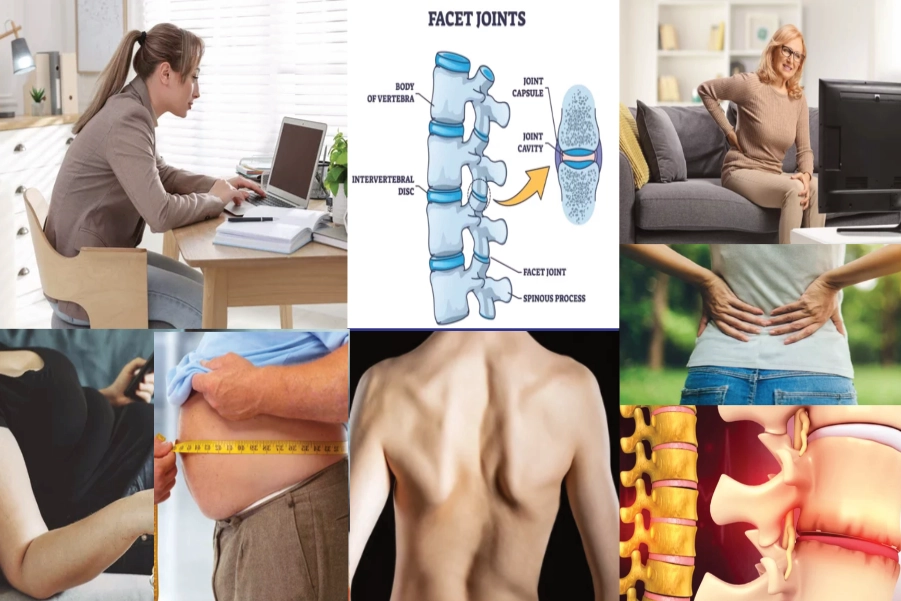Best Back Pain Physiotherapy You Can Trust
Trust “Best Back Pain Physiotherapy” for tailored rehabilitation, integrating evidence-based techniques to maximize recovery and restore independence. Our compassionate care and dedicated support aim to guide people affected by Mechanical Back Pain towards pain fee life , improved mobility and quality of life.
Best Back Pain Physiotherapy Doctors in Delhi, India

Physiotherapy for Back Pain
Back Pain Physiotherapy in Delhi
Physiotherapy for back pain involves manual therapy, therapeutic exercises, modalities, education on proper body mechanics, and pain management techniques, tailored to the individual’s condition for effective pain relief and functional improvement.
What is Mechanical Back Pain
Mechanical back pain, also known as non-specific back pain, refers to discomfort or pain in the lower back that arises from issues related to the structures of the spine, such as muscles, ligaments, discs, and joints. Unlike pain caused by specific conditions like fractures, infections, or inflammatory diseases, mechanical back pain does not have a clear underlying cause and is not typically associated with nerve compression or damage.
Mechanical back pain is characterized by:
Location: It typically occurs in the lower back (lumbar spine) but can also affect the upper back (thoracic spine) or neck (cervical spine).
Nature of Pain: The pain may be dull, achy, or sharp and may worsen with movement, bending, lifting, or prolonged sitting or standing. It often improves with rest or changes in position.
Duration: It can be acute, lasting for a few days to a few weeks, or chronic, persisting for more than three months.
Triggers: Mechanical back pain may be triggered by activities that strain the muscles and ligaments of the back, such as lifting heavy objects, sudden movements, or poor posture.
Risk factors for mechanical back pain include:
Sedentary lifestyle
Poor posture
Obesity or excess weight
Lack of regular exercise
Occupational factors such as heavy lifting, repetitive movements, or prolonged sitting
While mechanical back pain is common and usually not indicative of serious underlying pathology, it can significantly impact an individual's quality of life and ability to perform daily activities. Management typically involves a combination of physical therapy, pain management, lifestyle modifications, and self-care strategies tailored to the individual's needs and preferences.
Causes of Mechanical Back Pain
Mechanical back pain, often termed non-specific, arises from spinal structure-related factors. Muscular strain and ligament sprains from sudden movements are common causes, along with intervertebral disc degeneration and facet joint dysfunction. Poor posture, obesity, and muscle imbalances exacerbate the condition, while sedentary lifestyles and stress worsen it. Treatment involves pain management, physical therapy, ergonomic adjustments, and lifestyle modifications to alleviate strain and enhance spinal health.
MUSCLE STRAIN I LIGAMENT SPRAIN I DISC DEGENERATION I FACET JOINT DYSFUNCTION I POOR POSTURE I OBESITY I MUSCLE IMBALANCE I REPETITIVE MOVEMENTS I SEDENTARY LIFESTYLE I STRESS AND TENSION

Treatment of Mechanical Back Pain
Treatment for mechanical back pain typically involves a multi-faceted approach aimed at alleviating discomfort and promoting spinal health. Here's an overview of common treatment strategies:
PAIN MANAGEMENT:
Over-the-counter pain relievers such as ibuprofen or acetaminophen may help reduce inflammation and alleviate pain.
In some cases, prescription medications or muscle relaxants may be prescribed by a healthcare provider to manage more severe pain.
PHYSIOTHERAPY:
Physiotherapy plays a crucial role in treating mechanical back pain by improving strength, flexibility, and posture.
Therapeutic exercises and stretches are tailored to address specific weaknesses and imbalances in the back and core muscles.
Manual therapy techniques such as soft tissue manipulation, spinal manipulation, or mobilization may be utilized to alleviate muscle tension and improve spinal alignment.
ERGONOMIC ADJUSTMENTS:
Making ergonomic modifications to workstations, chairs, and sleeping surfaces can help reduce strain on the back.
Using proper lifting techniques and avoiding prolonged sitting or standing can also prevent exacerbation of symptoms.
LIFESTYLE MODIFICATIONS:
Engaging in regular exercise, such as walking, swimming, or yoga, can help strengthen the muscles that support the spine and improve overall fitness.
Maintaining a healthy weight through proper diet and exercise can alleviate excess strain on the spine.
Incorporating stress-reduction techniques such as mindfulness meditation or deep breathing exercises can help manage stress-related muscle tension.
EDUCATION AND SELF-CARE:
Education about proper body mechanics, posture, and ergonomics is essential for preventing future episodes of mechanical back pain.
Practicing self-care techniques such as gentle stretching, relaxation exercises, and maintaining good posture throughout the day can help manage symptoms and prevent recurrence.
It's important for individuals experiencing mechanical back pain to consult with a expert physiotherapist professional for an accurate diagnosis and personalized treatment plan tailored to their specific needs and preferences.
Physiotherapy Treatment for Mechanical Back Pain
Physiotherapy for back pain integrates manual therapy, therapeutic exercises, modalities, and education on proper body mechanics to alleviate pain, improve function, and prevent future episodes, tailored to individual needs.
The latest and advanced Class 4 therapeutic laser offers several benefits in physiotherapy. It penetrates deeper into tissues, promoting faster healing, reducing pain and inflammation, and improving circulation. Its precision and versatility make it an invaluable tool in managing various musculoskeletal conditions, enhancing patient outcomes and satisfaction.
Physiotherapy for Mechanical Back Pain
Multiple sclerosis (MS) rehabilitation typically includes a multidisciplinary approach involving various healthcare professionals. Components may include:
Physiotherapy plays a crucial role in managing mechanical back pain by addressing underlying musculoskeletal imbalances, improving mobility, and promoting long-term spinal health. Here’s a detailed overview of physiotherapy interventions commonly used for treating mechanical back pain:
ASSESSMENT AND EVALUATION:
A thorough assessment is conducted by a physiotherapist to evaluate the patient’s pain, range of motion, strength, flexibility, and functional limitations.
Specialized tests may be performed to identify specific areas of weakness, muscle imbalance, or spinal dysfunction contributing to the back pain.
MANUAL THERAPY TECHNIQUES:
Manual therapy involves hands-on techniques performed by the physiotherapist to mobilize stiff joints, release muscle tension, and improve spinal alignment.
Techniques such as spinal manipulation, mobilization, soft tissue massage, and myofascial release may be utilized to alleviate pain and improve mobility.
THERAPEUTIC EXERCISE:
Customized exercise programs are designed to strengthen the muscles that support the spine, improve flexibility, and correct postural imbalances.
Core stabilization exercises targeting the deep abdominal and back muscles help enhance spinal stability and reduce strain on the spine.
Flexibility exercises aim to improve the range of motion in the spine and surrounding muscles, reducing stiffness and enhancing mobility.
MCKENZIE METHOD:
The McKenzie Method is a specialized approach to mechanical back pain management focused on self-directed exercises and postural modifications.
Patients are taught specific movements and positions to centralize and alleviate pain, based on their individual response to various spinal movements.
EDUCATION AND POSTURAL TRAINING:
Patients receive education about proper body mechanics, ergonomics, and posture to prevent exacerbation of symptoms and promote spinal health.
Physiotherapists provide guidance on lifting techniques, sitting and standing posture, and ergonomic adjustments to reduce strain on the spine during daily activities.
MODALITIES AND THERAPEUTIC AGENTS:
Modalities such as heat therapy, cold therapy, ultrasound, electrical stimulation, or traction may be used adjunctively to reduce pain and inflammation.
These modalities can help alleviate acute symptoms and facilitate the effectiveness of other physiotherapy interventions.
FUNCTIONAL REHABILITATION:
Functional rehabilitation focuses on restoring the patient’s ability to perform daily activities and functional movements without pain.
Patients are guided through progressive exercises and functional activities that mimic real-life movements to improve strength, endurance, and coordination.
GRADUAL RETURN TO ACTIVITY:
Physiotherapists work with patients to develop gradual return-to-activity plans, gradually reintroducing physical activities and exercises while monitoring pain and functional progress.
Overall, physiotherapy for mechanical back pain is a comprehensive and evidence-based approach that aims to address the root causes of pain, restore function, and empower patients to manage their symptoms effectively for long-term relief and prevention of recurrence.
Our Treatment Process
Committed To Keep People Healthy & Safe
Our treatment process begins with a thorough assessment, followed by the creation of a personalized plan tailored to your needs. Through active rehabilitation, incorporating various evidence-based techniques, we work to promote healing and improve function. Continuous support and guidance are provided to ensure long-term success.
We start by having a thorough conversation with you about your medical history and any issues you’re experiencing. This helps us understand your unique situation.
We use state-of-the-art software and technology to analyze how your body moves and functions. This gives us a detailed picture of what might be causing your discomfort.
Based on what we find during the assessment, we create a personalized plan just for you. Our goal is to help you achieve specific outcomes, whether it’s reducing pain, improving mobility, or something else.
During your sessions with us, we use a combination of advanced technology and hands-on techniques to address your needs. This might include using special equipment or providing manual therapy to target problem areas.
We keep a close eye on how you’re doing throughout your treatment. By regularly checking your progress, we can make sure you’re on the right track and make any necessary adjustments to your plan.
Once you’ve made significant progress and reached your goals, we’ll guide you through a final session. Here, we’ll provide you with a customized digital exercise program that you can continue at home.
Even after your sessions with us are complete, we’re still here to support you. We offer virtual and online follow-up appointments to check in, answer any questions you may have, and provide ongoing guidance as needed.
At Best Physiotherapy Centre in Delhi for Mechanical Back Pain, We Follow Best Practices
Why Choose Us
We offer personalized care, crafting customized treatment plans based on your unique needs and goals. With expertise in physiotherapy and a holistic approach to healing, our team ensures comprehensive care that addresses both physical and emotional aspects of recovery.
- Personalized Care
- Experienced Professionals
- Expertise & Best Practices
- Holistic Approach
- Latest Technology
Meet Dr. Dharam Pandey and Team
Leaders in Advanced Physiotherapy & Rehabilitation
At Dr. Dharam Pandey and Team, we are dedicated to revolutionizing Advanced Physiotherapy & Rehabilitation through cutting-edge technology, personalized care, and a commitment to delivering exceptional outcomes. Led by Dr. Dharam Pandey, a renowned expert in Advanced Physiotherapy & Rehabilitation, our team is equipped with state-of-the-art facilities and staffed by highly qualified professionals. We specialize in outcome-based functional task training therapy, harnessing the power of advanced technology to optimize recovery for patients.
State-of-the-Art Facilities
Our facilities are equipped with the latest technology and amenities to create a conducive environment for rehabilitation and healing. From spacious therapy gyms to private treatment rooms, we prioritize comfort, safety, and accessibility for our patients.
EXPERTISE
Led by Dr. Dharam Pandey, our team comprises highly skilled professionals with extensive experience in stroke rehabilitation.
PERSONALIZED CARE
We believe in a patient-centered approach, tailoring treatment plans to address the individual needs and goals of each patient.
ADVANCED TECHNOLOGY
We harness the power of advanced technology to deliver innovative rehabilitation solutions and optimize outcomes.
COMPASSIONATE SUPPORT
We provide compassionate, supportive care every step of the way, empowering patients to achieve their full potential.
Best Physiotherapy FOR Mechanical Back Pain
At Dr. Dharam Pandey and Team, we are committed to redefining the standard of care in neurological rehabilitation. With our expertise, state-of-the-art technology, and unwavering dedication to patient-centric care, we strive to inspire hope, restore function, and improve quality of life for head injury survivors. If you or a loved one is seeking specialized rehabilitation services, we invite you to experience the difference at Dr. Dharam Pandey and Team.
Call Today
+91-9818911195 +91-9818910029
Sector-6 Dwarka, Department Of Physiotherapy [Basement 1 Manipal Hospital, Delhi, 110075
Schedule a Appointment
Note: Content provided here is for informational purposes only and is not a substitute for professional medical advice or diagnosis. If you believe you are experiencing pain or any other health-related issue, it is important to seek the advice of qualified healthcare professionals for a proper evaluation and treatment plan.









